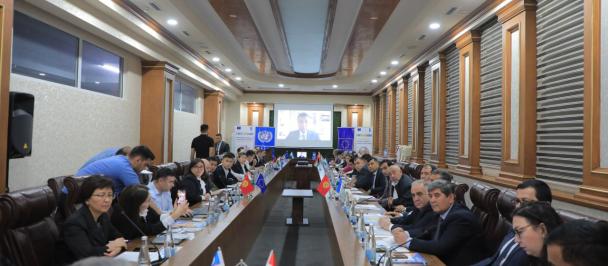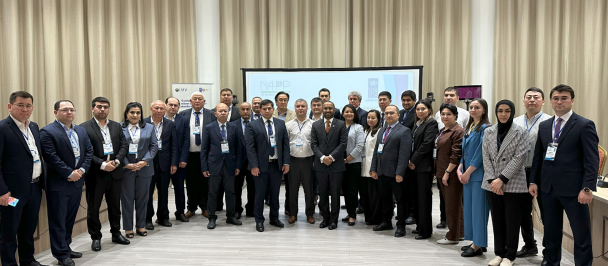Image: UNDP Uzbekistan
UNDP, UNECE in collaboration with Deutsche Gesellschaft für Internationale Zusammenarbeit (GIZ) and Hilfswerk International (HWI) conducted the 2-day regional ‘Sustainable walnut quality’ online training (during 7-8 September, 2021) for more than 60 producers, processors, exporters, as well as quality and food safety experts of Central Asia to improve their knowledge and capacities on implementation of international quality standards for walnut kernels.
The Central Asian region has the capacity to produce and market sustainable high-quality walnuts, as well as fresh and dried fruit and vegetable products, for both domestic and international markets. In parallel to these opportunities, challenges remain including production methods, the tree stock, the marketing practices, the use of standardized classifications or the diversification from traditional markets and their requirements, to the search for new markets.
The walnut industry in the region, along with many fresh and dried fruit and vegetable products, is mainly export-oriented and, therefore, holds the potential to contribute to improving livelihoods of rural communities. In particular, the sale of wild walnuts (in-shell and kernels) is a key source of income for over 100,000 people in the rural areas of Central Asia. The proceeds from the sale of walnuts account for up to 40% of their annual family income.
However, for potential to become reality, several key components need to be addressed one of them being the regulatory and legislative environment and the understanding of markets and buyers. This includes the use of national and international standards also by local producers, production methods, marketing or sales practices.
UNECE commercial marketing and quality standards are examples of widely recognized minimum requirements used in markets and the trade of nuts and dried fruit worldwide. The walnut standard for example is applied by leading producers, traders and buyers in Europe, USA and Asia in their commercial transactions and by their quality inspection bodies.
Recognizing the importance of improving the walnut value chain as part of a larger food system, the training addressed the topics that are essential to improve the current situation. This included the understanding, use and control of international standards, as well as other aspects such as production, marketing and sales of walnut kernels.
The training was conducted by international experts from France, Italy, Moldova, USA, UNECE, UNDP, GIZ and Hilfswerk International.
***
UNDP’s regional project “Aid for Trade in Central Asia – Phase IV” is funded by the Government of Finland and focuses on supporting Central Asian countries in promoting inclusive and sustainable growth patterns in rural areas and within green productive sectors.
Tags: UNDP Eurasia, UNDP Kyrgyzstan, UNDP Tajikistan, UNDP Uzbekistan, UNECE, GIZ, MFA Finland (Ulkoministeriö)

 Locations
Locations


